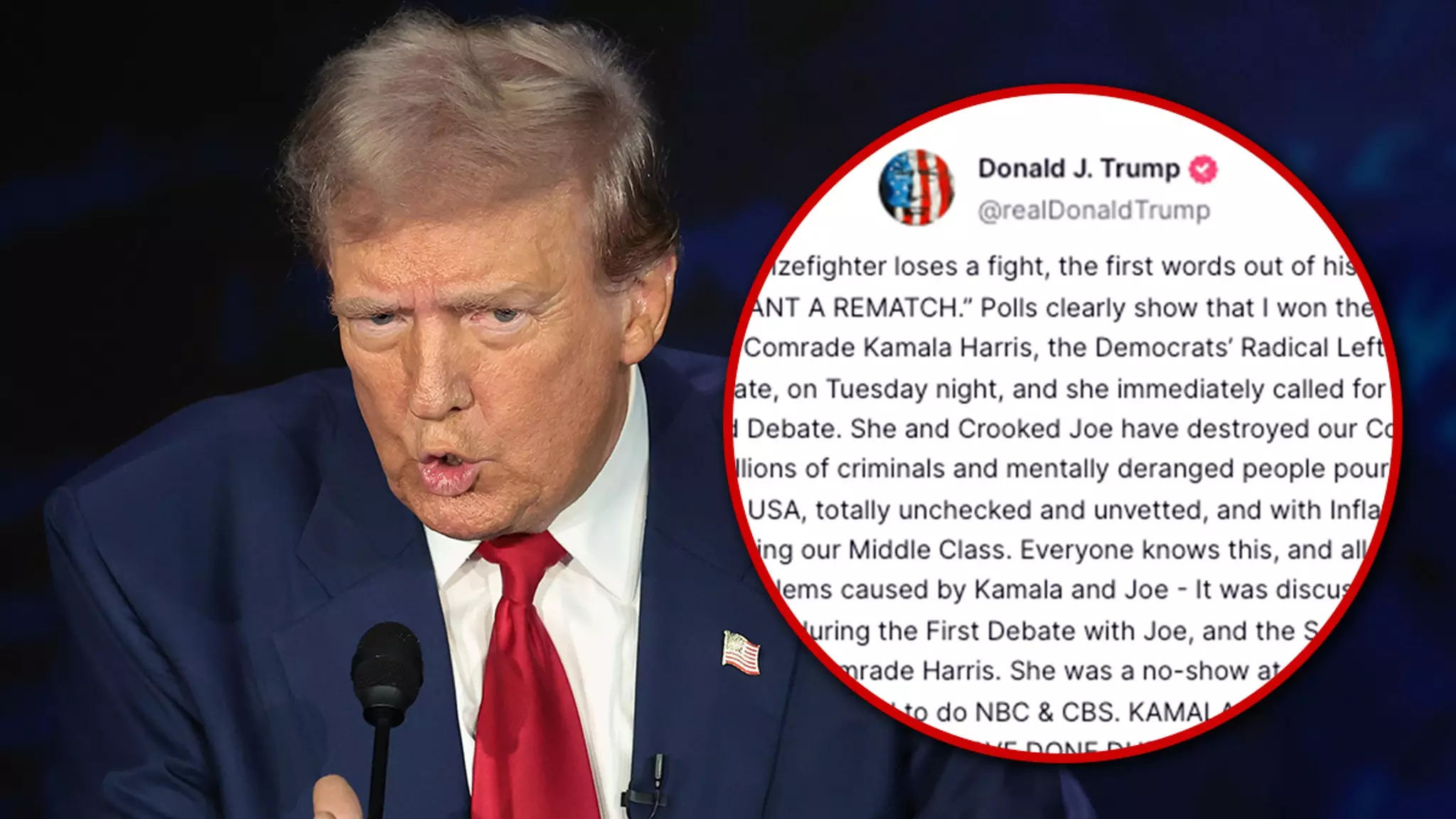In the current political landscape, the air is thick with speculation regarding potential debates leading up to the presidential election. However, Donald Trump has put an end to the conjecture by declaring that he will not participate in a third debate against Vice President Kamala Harris. Utilizing his preferred platform, Truth Social, the former president dismissed the possibility of further matchups, painting the Vice President as a desperate contender analogous to a fighter seeking a rematch after a significant loss. Trump’s self-proclaimed superiority stems from what he suggests are favorable poll results, which he believes illustrate a decisive victory over Harris.
Trump’s aggressive rhetoric highlights a broader campaign strategy of undermining the Vice President and the current administration. In his post, he likens Harris to “Comrade Kamala,” further insinuating a political philosophy that aligns with socialism—an accusation that resonates with certain voter demographics. Additionally, he asserts that Harris declined opportunities to debate on major networks like Fox News, CBS, and NBC, claiming that rather than engaging in discourse, she should prioritize addressing pressing national issues. This narrative fits his broader narrative of positioning himself as a champion of the American electorate against the established political order.
Recent debates have stirred up significant divides along party lines, revealing the complexities of voter sentiments in today’s political climate. Trump’s previous debate against President Joe Biden in June was intensely scrutinized, with outcomes that led to Biden’s withdrawal from the race. Harris, who has emerged as a formidable opponent in her own right, is still riding the momentum of her high-profile endorsements, such as that from the pop cultural icon Taylor Swift. While endorsements in mainstream culture may seem trivial to some, they play a crucial role in amplifying political messages, particularly among younger voters.
The stakes are undeniably elevated as both candidates grapple with nuanced issues like immigration and economic stability. Trump’s criticisms directed toward the Biden-Harris administration highlight a policy approach that some claim leads to unrest, with crime and mental health crises taking center stage. By focusing on these incendiary topics, Trump attempts to galvanize a base concerned with safety and economic viability amid rising inflation—a real concern for many Americans.
Trump’s refusal to engage further in debates reflects a shifting paradigm influenced significantly by social media dynamics. His post on Truth Social underscores how modern political discourse often occurs in digital spaces, allowing for instantaneous reactions and engagements. Such platforms empower political figures to communicate directly with their followers, bypassing traditional media filters. Still, the absence of debates might be seen as an evasion of accountability, sparking questions among voters regarding transparency and sincerity.
In light of these developments, Trump’s declaration that there will be no rematch against Harris raises critical dialogue regarding engagement in political discourse, the importance of debates in democracy, and the potential consequences of disengagement in an already polarized environment. The decisions made leading up to the election will undoubtedly resonate deeply with the electorate, shaping the future political landscape in profound ways.

